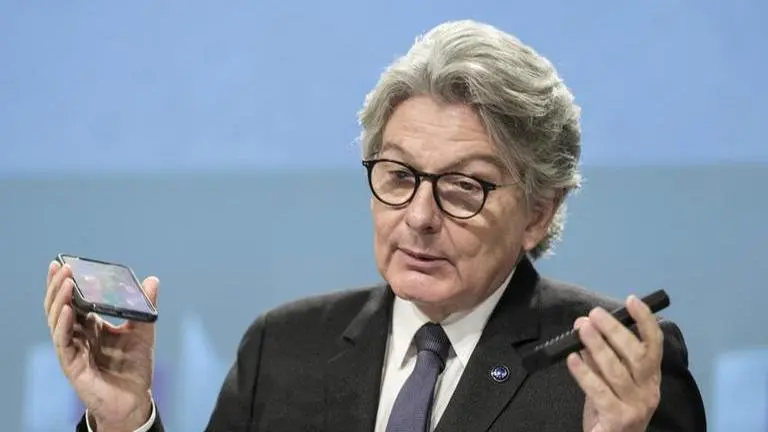Updated 4 October 2022 at 21:34 IST
European Union passes law to introduce common type-C chargers for mobile phones by 2024
The European Union passed a new law requiring USB Type-C to be the single charger for all mobiles. The new law will help consumers save €250 million a year.
- World News
- 3 min read

The European Parliament passed a new law on Tuesday requiring USB Type-C to be the single charger for all mobile phones and tablets from 2024. The new law is part of a broader effort by the European Union to reduce e-waste and empower consumers to make more sustainable choices.
The law was adopted by the European Parliament on Tuesday after passing with 602 votes in favour, 13 against and 8 abstentions. This move will be benefitting the environment and the consumers.
Benefits of the standarisation
USB Type-C port will be standardised for portable devices and will offer high-quality charging and data transfers. By the end of the year 2024, all mobile phones, tablets and cameras sold in the Eruopean Union will have to be equipped with a USB Type-C charging port, as per the new law.
According to the EU’s statement, the obligation will extend to laptops from spring 2026. Under the new rules, buyers will no longer require a different charger every time they purchase a new device, as they will be able to use one single charger for a whole range of small and medium-sized portable electronic gadgets.
Advertisement
Regardless of their manufacturer, all new electronic gadgets that are rechargeable via a wired cable, operating with a power delivery of up to 100 Watts, must be equipped with a USB Type-C port, states the new law. This will include mobile phones, tablets, digital cameras, headphones and headsets.
Furthermore, all the devices that support fast charging will now have the same charging speed. This will enable users to charge their devices at the same speed as any compatible charger. This is a key development and encourages technological innovation.
Advertisement
“As wireless charging becomes more prevalent, the European Commission will have to harmonize interoperability requirements by the end of 2024, to avoid having a negative impact on consumers and the environment,” the press release stated.
The implementation of this law will also get rid of the so-called technological "lock-in" effect. Under this effect, a consumer becomes dependent on a single manufacturer. However, with the law in place, buyers will be able to make a much more informed choice about whether or not to buy a new charging device with a new product.
The new law will help save €250 million a year
The implementation of the law looks to ensure more reuse of chargers and will help consumers save up to €250 million a year on unnecessary purchases of new chargers. Moreover, it will help out in reducing 11,000 tonnes of e-waste in the EU annually.
The European Council will have to formally approve the directive before it is published in the European Union’s official journal. The law comes into force 20 days after publication. Member nations will then have twelve months to transpose the rules and twelve months after the transposition period to apply them.
However, the new rules will not apply to products released into the market before the date of application. In the past decade, the European Parliament has repeatedly called for the introduction of a common charger. Despite previous measures to work with the industry to bring down the number of mobile chargers, voluntary efforts failed to produce concrete results for EU consumers. The legislative proposal was finally tabled by the Commission on 23 September 2021.
Published By : Yuvraj Tyagi
Published On: 4 October 2022 at 21:34 IST
